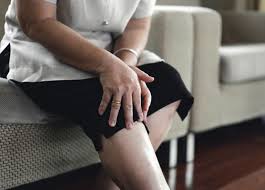Objective: To develop a diagnostic score for knee osteoarthritis flare-ups and to evaluate its sensitivity and specificity.
Methods: We used two epidemiological databases built using the same methodology. One database was from a general-practice study and served to develop the score, whereas the other was from a rheumatology study and served to validate the score. Physicians determined the flare-up status of each patient. The rheumatologist diagnosis was the reference standard. Logistic regression was performed to identify factors significantly associated with having a flare-up.

Results: Of the 6085 patients in the general-practice database, 52.3% had a knee osteoarthritis flare-up. The score was built by assigning points to features that were present, with a weighting system based on the odds ratio of each feature for having a flare-up (0, feature absent; 1, morning stiffness for longer than 20 min; 2, pain causing nocturnal awakenings and knee effusion; 3, limping, joint swelling, and increased warmth over the knee). The score could range from 0 to 14. The receiver-operating characteristic curve showed that 7 was the best cutoff for diagnosing a flare-up. In the rheumatologist database, the numbers of patients having a flare-up were 274 (46.4%) based on the score and 270 (45.7%) based on the rheumatologist diagnosis. Sensitivity of the score was 87.0%, specificity 87.9%, positive predictive value 85.8%, and negative predictive value 89.0%. The Youden index was 0.75.
Conclusion: A score equal to or greater than 7 points correlated well with a rheumatologist diagnosis of flare-up. Our score may constitute a valid objective criterion for standardizing the diagnosis of knee osteoarthritis flare-up, most notably when screening patients for inclusion in therapeutic trials.
Joint Bone Spine, 2009 May;76(3):268-72.
 Blog de Fisioterapia Fisioterapia
Blog de Fisioterapia Fisioterapia



